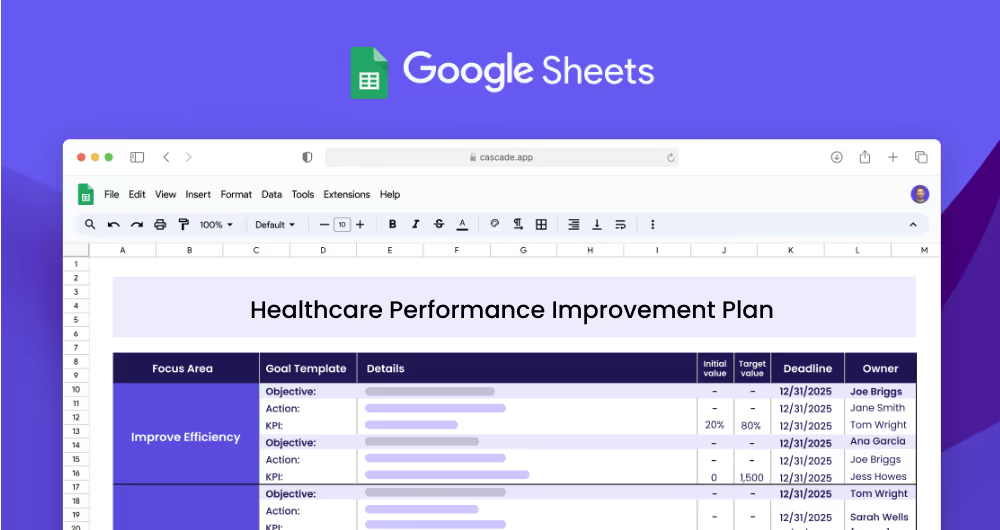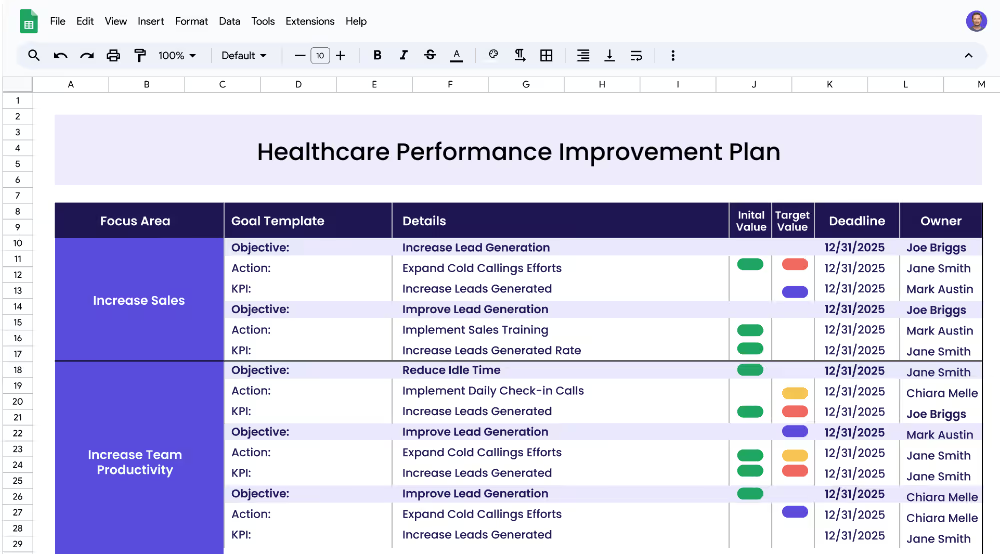A healthcare performance improvement plan is a comprehensive strategy that outlines specific objectives, actions and measures to improve patient care, reduce costs, and enhance staff efficiency. This plan allows healthcare professionals and teams to develop and execute initiatives that will have a positive impact on their organization. It is important for healthcare organizations to have a comprehensive plan that is tailored to their needs and goals.
Each focus area has its own objectives, projects, and KPIs to ensure that the strategy is comprehensive and effective.
This healthcare performance improvement plan template is designed specifically for healthcare professionals and teams. The template provides a comprehensive framework for developing and executing initiatives that will help to improve patient care, reduce costs and enhance staff efficiency. It can be adapted to meet the specific needs and goals of each healthcare organization.
When creating a healthcare performance improvement plan, the first step is to define clear focus areas. A focus area is a broad area that you can use to set objectives, goals and targets. Examples of strategic focus areas that could fall under a Healthcare Performance Improvement Plan could be: Improve Patient Care , Reduce Costs , and Improve Staff Efficiency.
Once you have identified your focus areas, the next step is to consider the objectives that could be set to achieve progress in that area. Objectives are measurable goals that you can use to track progress towards your focus area. For example, an objective could be to increase patient satisfaction or reduce staff turnover.
Once you have identified your objectives, you must then set measurable targets to help you track progress towards those objectives. These targets are often referred to as Key Performance Indicators (KPIs). For example, you may set a KPI to decrease the average wait time for patient care from 48 minutes to 30 minutes.
Once you have set your KPIs, you must then implement related projects to help you achieve those targets. Projects are specific initiatives or activities that will help you reach your KPIs. For example, you may implement a project to streamline patient care processes to help reduce the average wait time for patient care.
If you’re ready to accelerate your strategy and see quicker results, Cascade Strategy Execution Software is your next step. Unlike manual spreadsheets that can bog down your progress, Cascade offers a dynamic platform that enhances real-time updates, centralized collaboration, and automated reporting. This means your team can easily track progress, adjust strategies quickly, and maintain alignment across all levels. Sign-up for free or book a demo with one of our strategy experts to explore how we can help you streamline and succeed.


